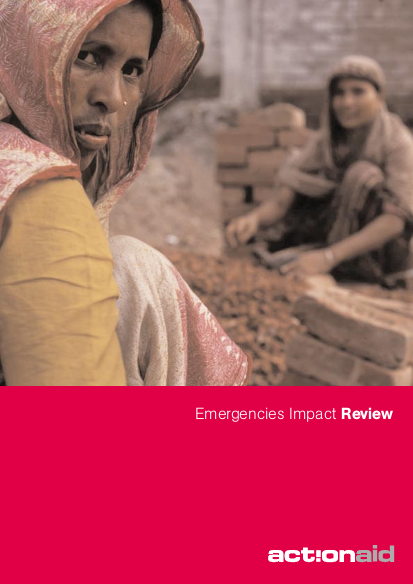
ActionAid has recognised for some time that poor people are more vulnerable to the impact of natural disasters and conflicts. As an organisation working towards the eradication of poverty, we have to work with poor people to address the consequences of these emergencies. We have been supporting emergencies work with an increasingly distinct long-term approach. This was articulated in the Emergency Strategy approved by the Directors in May 2000, in which existing approaches became consistent with the rights-based approach of the 1999-2003 ActionAid strategy, Fighting poverty together. We stress the importance of strengthening poor peoples’ capacities to cope with the impact of emergencies. We seek to increase the capacities of those who are responsible for emergency preparedness and response. ActionAid takes opportunities presented by emergencies to advance our overall goal of poverty elimination. ActionAid has decentralised management which ensures that decisions are made as close as possible to where their consequences are felt. Central to the spirit of Fighting poverty together is our accountability to the poor and marginalised women, men, boys and girls with whom we work. ActionAid’s accountability systems encourages this by promoting greater participation and transparency in all our work and empathy with the poor and marginalised groups with whom we work. A key tool is the use of review and reflection processes, which give us the chance to learn locally from our experience and how others perceive our work. Within the organisation, we have international networks of staff involved in specific aspects of work. The networks serve as a mechanism to share this learning internationally among peers, without depending on line management structures.